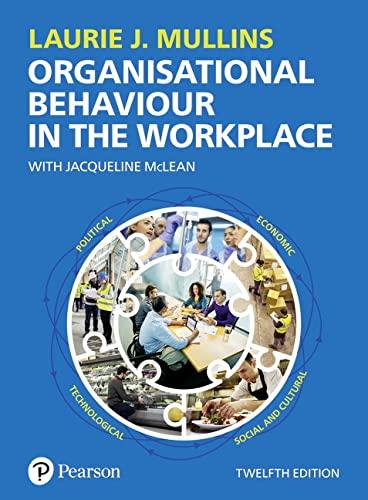It always strikes me as surprising, when talking to my peers at other companies, how many of
Question:
It always strikes me as surprising, when talking to my peers at other companies, how many of them talk about the substantial time they have to spend lobbying their colleagues to take CSR seriously. Maybe one of the problems is the phrase itself – corporate social responsibility – which implies a commitment without a return; something you have to do, but from which you can derive little value. And why, in tough economic times, would companies prioritise something that doesn’t help the bottom line? Why indeed.
At Sky, we look at things a little differently. We don’t talk about CSR. Instead, we concentrate on longterm value creation, grounded in a focus on what really counts for customers. Looking at things from this angle, it makes perfect commercial sense to act responsibly day to day and to contribute broadly to the communities around you. After all, like it or not, your brand isn’t only created by what you say about yourself. It’s built on what others say and think about you, which itself is built on their experience of what you do. For good or bad, that influences customer loyalty, employee engagement, investor sentiment and the regulatory and political climate.
This point is increasingly important in business.
All those stakeholder groups now have fast and easy access to a wealth of information and commentary about your company, from news reports to social media conversations. Segmenting your audiences and controlling the message is becoming an impossible task. And, anyway, all the research shows people are more likely to trust what they hear through their informal networks than what they hear directly from you.
So, focus first on doing, rather than saying, the right things. Set it all in the context of longterm value creation, and you’ll find it’s no longer an unwanted responsibility to be discharged, but a positive opportunity to build trust, encourage reappraisal and open up new commercial avenues. At Sky, we’re proud of the positive contribution that our business makes to the communities around us, from bringing choice in TV to consumers, to the jobs that have been created for the 16,500 people who work at Sky. But we want to do more, because we know it’s what our customers and employees expect of us, and because we know that it drives positive reappraisal of our brand by those who haven’t yet joined Sky. So we’ve chosen three areas which we know our customers care about and where we think we can make the biggest difference: using our relationships with 10 million families across the UK and Ireland to inspire action on climate change, encourage participation in sport and open up the arts to more people.
Our work in sport, for example, builds on our strong history and credibility in sports broadcasting to get more people active. Within this, our partnership with British Cycling takes a threepronged approach: support for the GB cycling team, enabling our elite cyclists to be the very best they can be; the creation of Team Sky, the UK’s only professional road racing team, to inspire a whole new generation of cyclists to get on their bikes; and Sky Ride, a series of mass summer cycling events across the UK, free to all and free of traffic, which more than 200,000 people took part in last year.
The longterm commercial benefits of such activity are clear to us at Sky, but are equally easy to see at a large and growing number of other successful UK companies.
For such brands, CSR isn’t about responsibility.
It’s about opportunity, creating sustainable value over the long term. And, if you want to be around for years to come, that’s hard to argue with.
1.To what extent do you associate CSR as a commitment without a return?
2.Discuss Sky’s approach of CSR as central to strategy and longterm value creation.
3.Give your own examples of how CSR can create opportunity and commercial benefits for an organisation.
Step by Step Answer:

Organisational Behaviour In The Workplace
ISBN: 9781292245485
12th Edition
Authors: Jacqueline Mclean, Laurie Mullins





